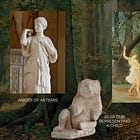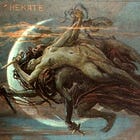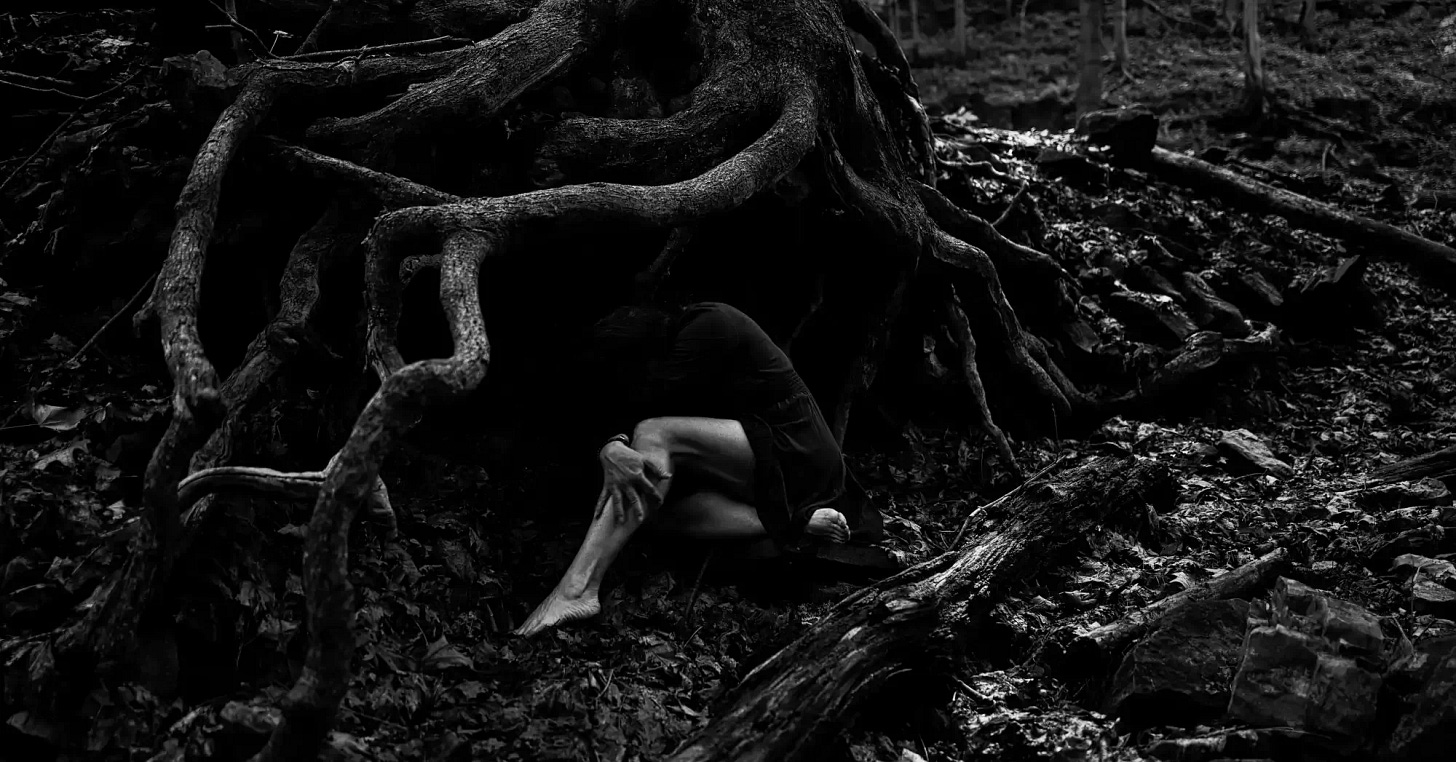A while ago I wrote quite a few articles, that are part of the soulware series. Trying to explain the soul, as a sort of operating system to bridge the deeper spiritual truths to a language that people understand. To talk about Kronos (super-ego and inner critic), Hermes (as the self-discovery ego), Dionysus (as the wounded inner child), Artemis and Apollo (as the paths of self-empowerment), next to the grief work of Persephone. To translate the ancient Orphic and mythological way of viewing things, into words that modern people could understand. In the form of parts of the soul, path ways and inner tools for psycho-spiritual growth.
Rewriting the Trauma Myth: Tools for Healing
To move from trauma and feeling helpless, towards healing and self-empowerment. And with the articles show both the different parts, and the deeper patterns and tools they have to offer. Such as figuring out ones trauma myth, and how to rewrite it using the archetypal stories and connected tools. May that be Hermes.pak as exploration toolkit of ones repressed parts, Apollo.pak with the expression of repressed primal instinct or even Artemis.pak with her bear dance.
Preparing the Ego for Deeper Work
Yet the paths of Hermes, Apollo and Artemis, what they really represent is the preparation of the ego for the deeper work that awaits. To give the ego both the framework, and with it the necessary primal connection to instinct, to survive the descend that comes. Into the grief of the goddess and child, as the ancient mystery traditions framed it. Symbolised by Dionysus as the wounded and dismembered child and Persephone as the grieving mother. Yet she is also the queen of the underworld, and the maiden that faces grief within her own sacred descent journey.
The Dismemberment of the Self
Yet in the deepest sense. If we are to strip all the myth and symbolism from all of it. If we are to see the real truth of it, beyond all the stories we as humans tell, and use to make sense of our pain. We can start to see how all of this, are elaborate stories for the deeper inner forces that live within ourselves. Hermes or maiden Persephone are the ego, so the self we identify with. Apollo and Artemis are the ego that integrates their instinctual side, their inner wolf or bear. Where Dionyus is our wounded inner child, the division between consciousness and the unconscious, with what we call both the ego and super ego (Kronos), as symptoms of this woundedness. Kronos is the voices of trauma and the internalised shame, guilt and narratives. Whilst Dionysus in his dismembered state is both Dionysus-Helios (ego) and Zagreus (the repressed parts of our psyche). The first we call redeemer, but the latter we rather not face. Yet it is within that woundedness, that we can find wholeness.
Kronos and the Repressed Child
In that sense, it is the ego itself that is the dismembered part, split off from the whole, and the repressed pain, as much as the shadow is actually our repressed wholeness. Which includes our rage, grief, joy and authentic self. That got repressed by Kronos, so our trauma and internalised trauma narratives. Where the journey of Persephone, and the grieving with her, regarding Dionysus’s dismemberment, is to grief our inner child, that never got to be. It is thus a really elaborate symbolic story, that the human psyche created to work through its own wounding. To find a way to nurture the split between consciousness and the unconscious. Which we call masculine and feminine. That then produce the child, which is when the mind reunites both the rekindled flame of true consciousness and the dark waters of the unconscious, the dark mother.
Grief as Sacred Work: Holding the Inner Child
Yet to be frank, it is the human mind trying to make sense of our childhood wounds. The way we never got held the way we needed to. To be seen in our wholeness, and our authenticity. To have our emotions accepted as valid. That it is ok to be sad and cry, that it is ok to be upset, to run around with joy. Yet humanity tends to project this outwardly as narratives. The gods and goddesses, and their stories. Not realising that it is the sacred language of the soul. Crying out to be whole. For the child within to be cradled by our own hands. Like our hands wrapped around the child that never could be themselves. Not fully. Yet it is easier to project, to blame and to create stories to manage this trauma. Then to sit with this soul deep grief. As it is not just our own grief, it is the grief that humanity carried, and passed on.
This is why I once told a friend, that there is no need to take on the suffering of the world, as he is already carrying it on his own. If you sit with your grief, hold your inner child, and mourn with and about the inner mother (Persephone), that is enough. It is about reclaiming your primal fire, your emotional waters, your sacred soul light, and with it your wholeness. If you do that, you heal the world. As your presence becomes like a lighthouse towards others. Without needing to fix others. Just by being you.
Authenticity and Self-Compassion
From there your actions arise naturally from wholeness, integrity, authenticity and also care, love and deep compassion. Not because you perform it, but because you exist. There is no need to proof your worth, just to feel and hold yourself with tenderness. That in itself is enough. It is easy to get trapped in super-ego scripts. May that be the type of spirituality that is self-punishing or avoids grief and shadow. Or the moralising kind that makes one feel unworthy and bad for carrying a hurt inner child within. Or the various secular ideologies that sometimes devolve into cults of self-denial and self-flagellation for a cause. To proof one is “good enough”.
Right now, just picture me sitting next to you and your inner child. Just hold that in your mind and heart. And picture this. Me saying to your inner child. You are enough little one, you always were. I am sorry no one came when you cried. I am sorry that you were not held how you were meant to. It is ok to cry, to feel, to feel angry and upset about all you never had. To want to be loved, seen and cared about.
I want you to know that I honour you in your grief. I see you in your anger. And I hope that my words can hold you in a way you needed, but never received.















